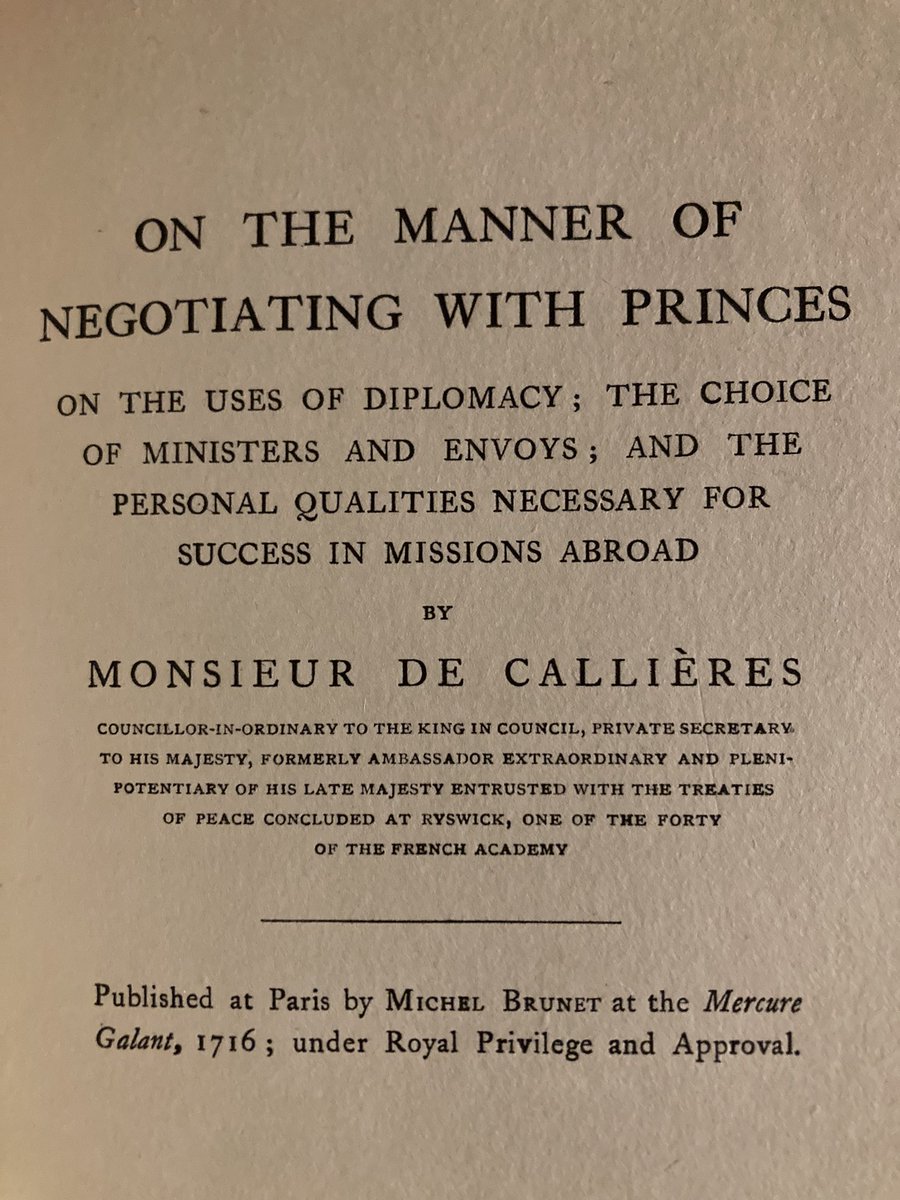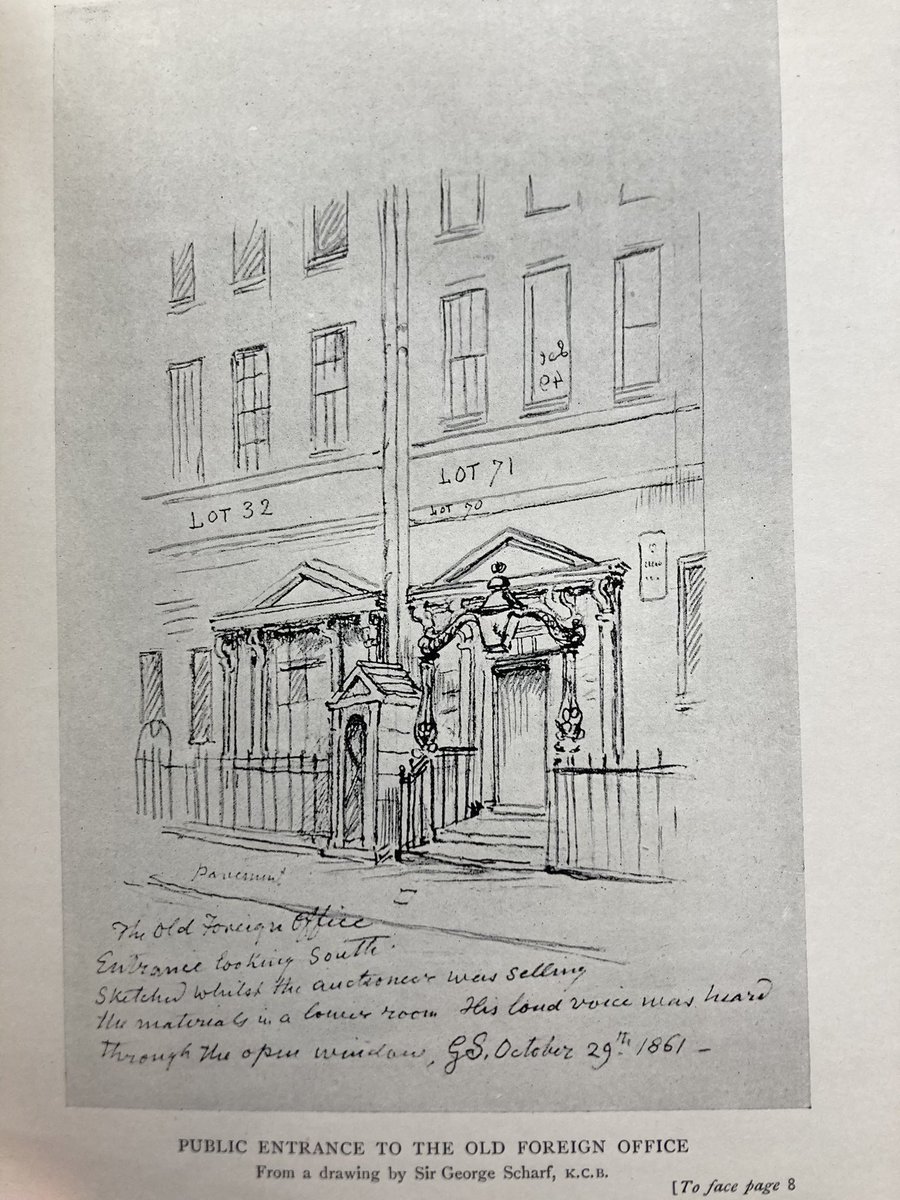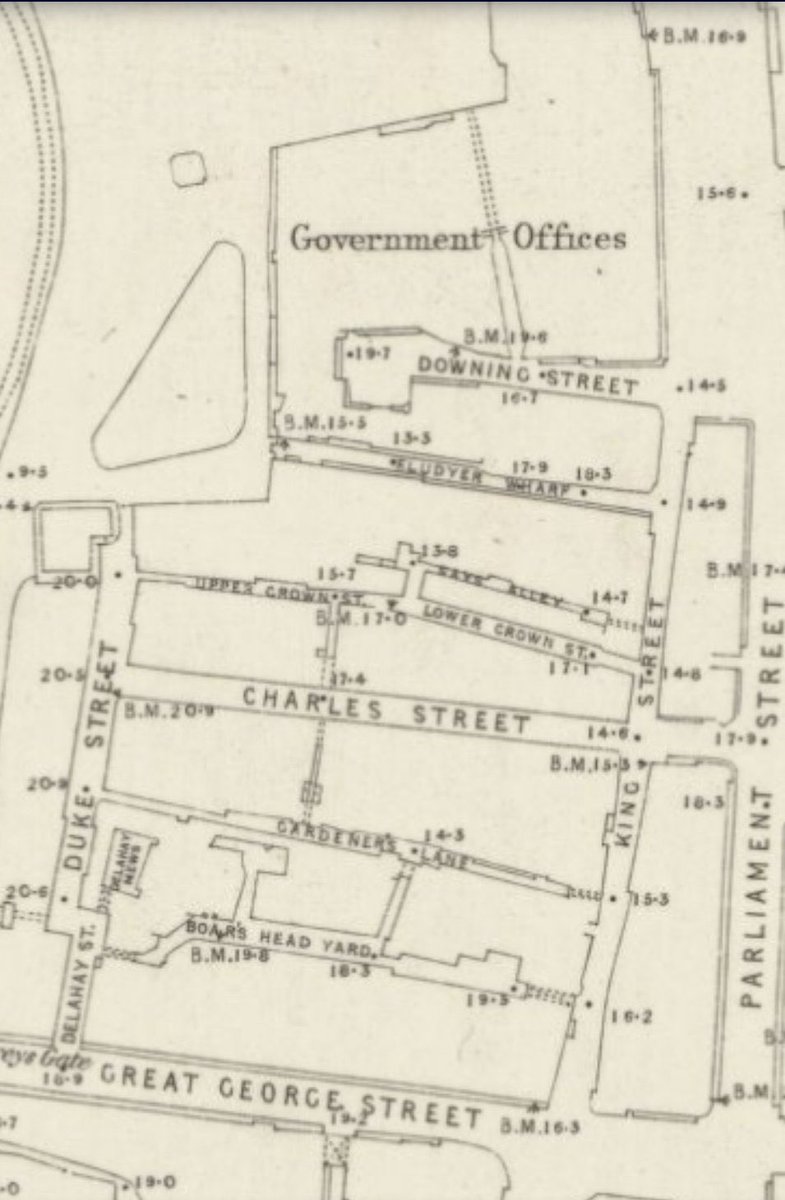British diplomat Sir Peter Marshall died in June this year. He finished his Foreign Office career as UK Permanent Representative in Geneva (1979-83) before becoming Deputy SG of the Commonwealth (1983-88).
Here are his ten precepts of diplomacy. 🧵
Here are his ten precepts of diplomacy. 🧵

1. It takes two to negotiate.
“Diplomats know only too well that apparently irreconcilable differences can often be settled, given time, patience, understanding and imagination (…) Nothing ventured, nothing win.”
“Diplomats know only too well that apparently irreconcilable differences can often be settled, given time, patience, understanding and imagination (…) Nothing ventured, nothing win.”
2. A problem postponed can be a problem solved.
“In everyday life, we are frequently tempted to’ have it out’ with someone or to insist that a particular issue must not be. Emotionally satisfying as such an attitude may be, it is often likely to be mistaken.”
“In everyday life, we are frequently tempted to’ have it out’ with someone or to insist that a particular issue must not be. Emotionally satisfying as such an attitude may be, it is often likely to be mistaken.”
3. Everything has a long history.
“We have to understand why it is that people act and think as they do. That does not mean that we need acquiesce in others’ mistaken and disruptive reading of the past (…) But a firm grasp of the antecedents in any particular case is essential”
“We have to understand why it is that people act and think as they do. That does not mean that we need acquiesce in others’ mistaken and disruptive reading of the past (…) But a firm grasp of the antecedents in any particular case is essential”
4. The confusion theory of politics is generally a better guide than the conspiracy theory.
“The role played by chance, coincidence, internecine rivalry, distraction, ignorance, fatigue, illness and at times even caprice, may have been decisive”
“The role played by chance, coincidence, internecine rivalry, distraction, ignorance, fatigue, illness and at times even caprice, may have been decisive”
5. Think round a problem as well as through it.
“Effective action also depends on flair, imagination and patience, as well as experience. Time and again the wise course is oblique rather than direct.”
“Effective action also depends on flair, imagination and patience, as well as experience. Time and again the wise course is oblique rather than direct.”
6. Diplomacy is human, not just cerebral.
“You are dealing with human beings: you are one yourself. Your interaction with others will bring into play all the skills and attributes which you possess and which they possess.”
“You are dealing with human beings: you are one yourself. Your interaction with others will bring into play all the skills and attributes which you possess and which they possess.”
7. You must be ready to substitute detachment for commitment.
“The individual diplomat may be obliged to make an adjustment overnight from absorption in an endeavour to the limits of his or her talents to abandonment of that endeavor without looking back.”
“The individual diplomat may be obliged to make an adjustment overnight from absorption in an endeavour to the limits of his or her talents to abandonment of that endeavor without looking back.”
8. Like what you get rather than always strive to get what you like.
“The recipe for a happy and fruitful career (…) is to have no great preconceptions about the jobs we should try and secure, but rather to set about whatever task we are allotted in a positive frame of mind”
“The recipe for a happy and fruitful career (…) is to have no great preconceptions about the jobs we should try and secure, but rather to set about whatever task we are allotted in a positive frame of mind”
9. Do not get carried away by the trappings of diplomatic life
“Take your job, but not yourself seriously. There is a great deal of truth in that proposition. Necessary self-respect - and ambition - must be accompanied by a sense of humour and an absence of vanity.”
“Take your job, but not yourself seriously. There is a great deal of truth in that proposition. Necessary self-respect - and ambition - must be accompanied by a sense of humour and an absence of vanity.”
10. “This above all, to thine self be true”
“There is no better watchword for a diplomat (…) Being true to one’s self is the guarantee of integrity which validates and enhances one’s powers of advocacy. It is the characteristic which in the end carries most weight.”
“There is no better watchword for a diplomat (…) Being true to one’s self is the guarantee of integrity which validates and enhances one’s powers of advocacy. It is the characteristic which in the end carries most weight.”
All of this is taken from the final chapter of Sir Peter’s book “Positive Diplomacy” (1997) which of course goes into all of these points in more detail and with more nuance.
End of 🧵
End of 🧵

“Must not be fudged”
For those of you with a subscription, @TimesObits published an obituary of Sir Peter Marshall yesterday.
thetimes.co.uk/article/sir-pe…
thetimes.co.uk/article/sir-pe…
• • •
Missing some Tweet in this thread? You can try to
force a refresh
















